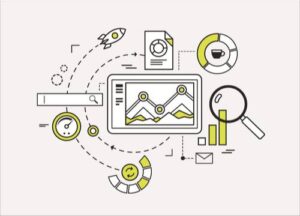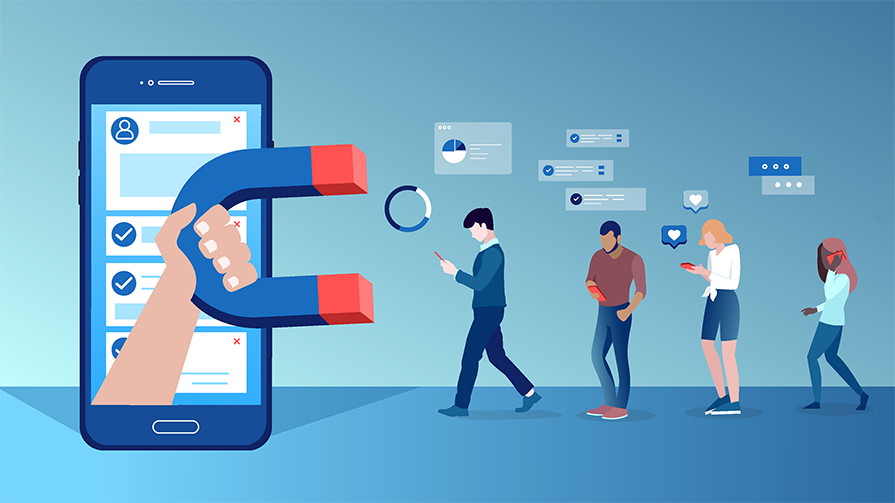You’ve stacked your business high with experts in your field. When hiring, you’ve sought relevant experience and the deep knowledge required to really “get” what your business does. Because you’re experienced, too. The expertise you have from the years you’ve put in and the things you’ve learned is beyond valuable. It’s one of the biggest reasons people do business with you.
It’s great that you and your team are experts. But your customers don’t really care about that. And why not? Because that’s not their top concern.

If you’ve ever bought a product or requested a service from a business and had your phone calls ignored, had an “expert” talk over your head, or been passed around between representatives, you know how bad that feels. You want to trust a business, but you suspect that, as a customer, you’re not their top priority. Instead, you’re putting your fate in their hands without any actual ownership of your experience. And you’re about to pay someone for that?
When it comes to your business, that’s how some of your customers might actually feel about your team.
Fortunately, your expertise can be a huge asset to your customer base if you’re able to actually help them along their journey. Knowing what they want and need, while providing them with excellent customer experiences, is key. But you need the tools to do it— that’s where your CRM software comes in.
When most people think of CRM, they simply see a database for storing customer information. But it’s much more than that. Your CRM can actually help you harness your experience to develop a deeper connection with your clients.
Here are three ways to do it:
Give Your Team Better Access to Customers

With CRM software, your data exists in a centralized place that allows you to consolidate your customer profile and kickstart sales. Your entire team has access to details relating to your sales pipeline. And with cloud-based CRM software, they can do it anywhere they need to.
That’s great stuff. But it’s the way you use your customer data, and how that information is shared among your team that matters.
Once a contact becomes a customer, your sales agent hands off all of the information they gathered through the opportunity stage to an account representative. Clients have ongoing needs that should be recorded and referenced by customer service at all times.
Your customers may have received certain information during the early stages of the sales process and not other information. You don’t want to waste their time repeating information, while leaving them in the dark on other things they need to know. CRM software enables your account representative to easily make decisions on where your customers are in their journey— and give them what they need in each moment.
When you make this process smooth, your customers will appreciate it. They’ll feel like you’re actually being helpful as they become more familiar with your business. Which is a good thing, because you are actually making it easier for them.
Make the Customer Journey Truly Personalized

Personalization is now the norm for the customer experience. It factors into everything, from the actual purchase of your company’s services, to how clients promote the ongoing company conversation. It is client-focused, with an emphasis on relationship-building.
Touchpoints – how a consumer interacts with your business – are the key to creating a personalized sales approach. A touchpoint can be anything—a face-to-face, phone call, website or blog, app, or a whitepaper.
Giving your sales team a multiform approach by which to make their sales promotes an organic method for personalization. Entrepreneur’s short discussion on the number of touchpoints vs quality of existing touchpoints is particularly relevant here: “By making both routes easier for salespeople, CRM systems can increase lead conversion rates by 300 percent while boosting purchase value by 40 percent.”
Basically: the more options you have to connect with your clients in a way that suits their particular style or need, the better chance you have of making sure they get value from what they want. And that they get it from someone who is interested in making that experience even better.
You’re creating a mindset for your customer that addresses their desire for a one-on-one, tailored relationship.
Automate- But Only The Right Things
On the surface, automation sounds like something completely de-personalized. But if you automate the right things, your team will actually be able to spend more time on building a better customer relationship.
What can be automated through CRM?
- Data entry (example: adding contacts automatically from forms filled out on your website).
- Personalized email newsletter campaigns based on actions taken or interests expressed to a representative (welcome campaigns, too).
- Customer interaction, chat information, and reminders to follow up.
Done well, automation can be used to maintain a flow of conversation between you and your clients on all levels of interaction, including the social sphere. The difference between the two is that automation is the step in between personalization and outward conversation: it guides your clients and shows them where to direct their interest.

Think of the process by which a contact becomes a lead through your website: the contact browses your services online and decides to fill out your contact form. Your automation sends them an email campaign welcoming them. It then sends them targeted information about your services, and encourages them to validate your experience level.
Maybe you’re a travel company, and your new lead indicated they’re interested in Alaska and the Northern Lights. Your system pushes out information about Alaska—along with a few emails designed to get them thinking about Greenland, Iceland, or Norway as their next adventure. It encourages them to talk to you if they have any questions about what they’ve received and to check what past or current travelers are saying online about their experiences with you in all four destinations.
All of that automation saves you a ton of time with a little initial effort. The mindset here is twofold: it creates the feeling of effortless conversation for both the sales agent and the client. And it creates the mindset that there is a path for the client to follow—that you’re leading your client through the woods past the scary wolf to grandma’s house.
Conclusion
You may think it’s hard for your business to get customers. But take a minute and see it from their side:

These days, it’s really hard to be a customer. There are too many choices, and everyone is posing as an expert. In the end, the business teams that use their expertise to guide the customers’ experiences while actually meeting their needs will be the ones who win.
Make your expertise relevant to your customers. And make sure you’re using your CRM in a way that uses your experience to help them accomplish their goals.
This article is part of a series on CRM software. Stay in touch to find out more about CRM, its uses and functions, and how it can help your business grow in 2020.

